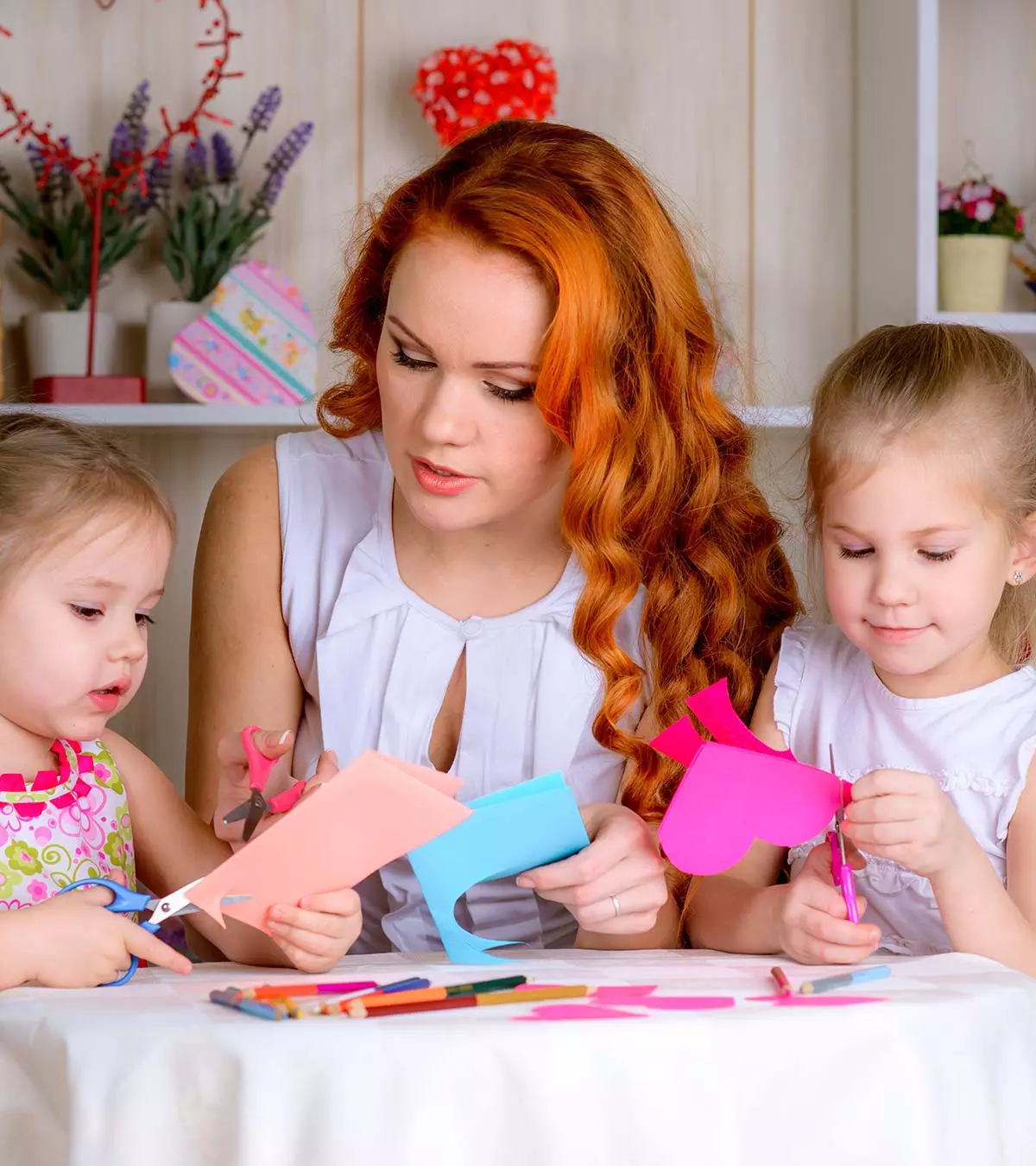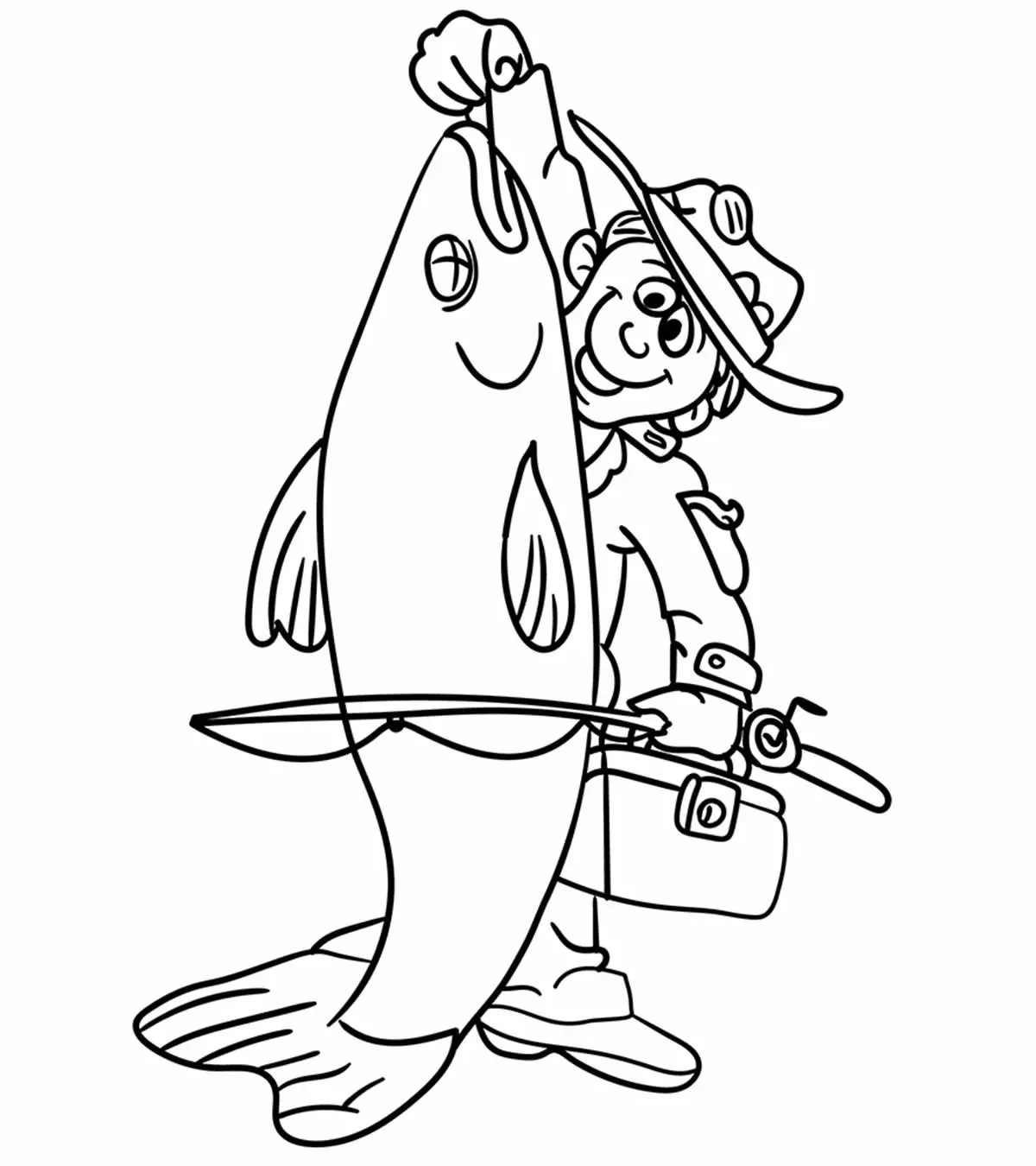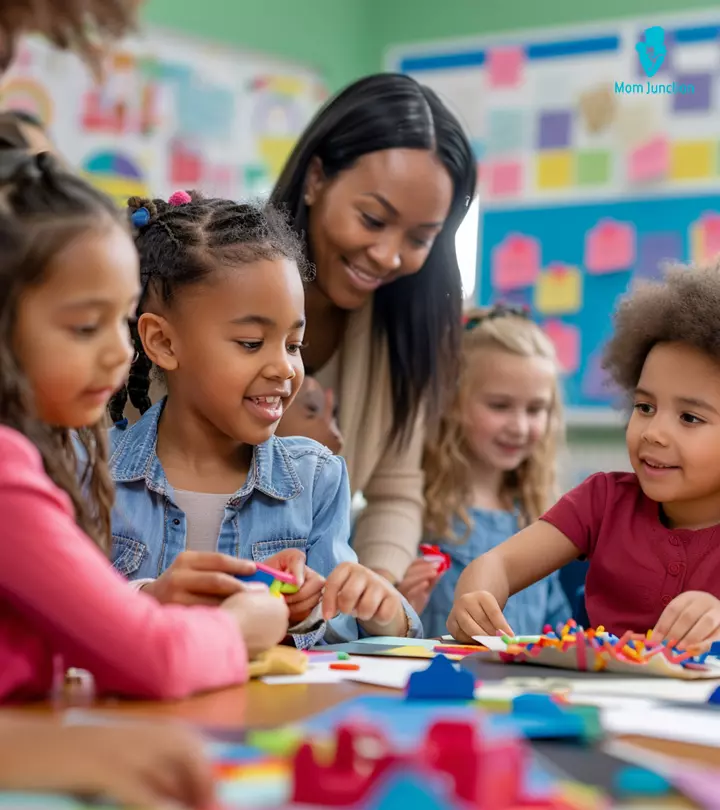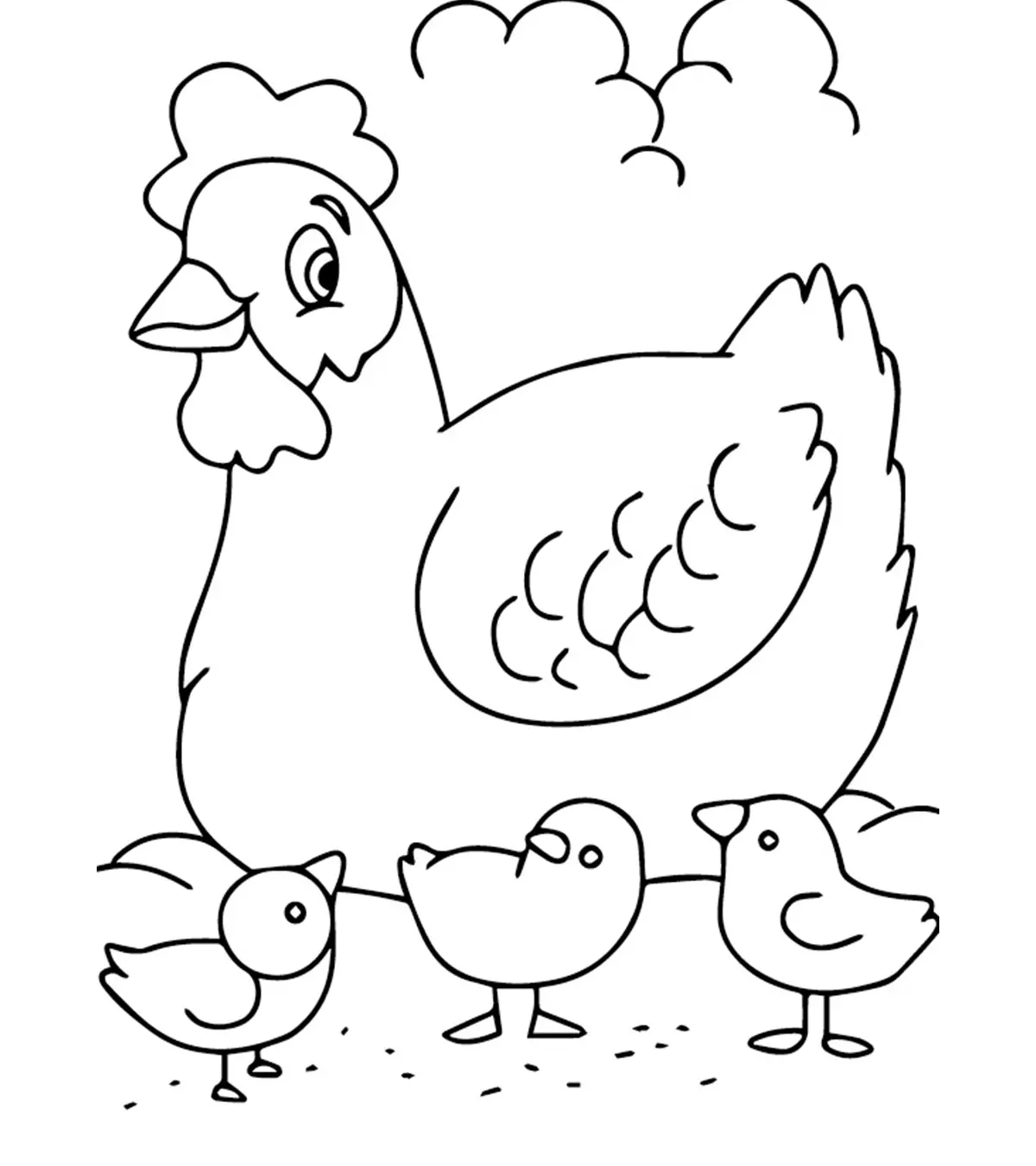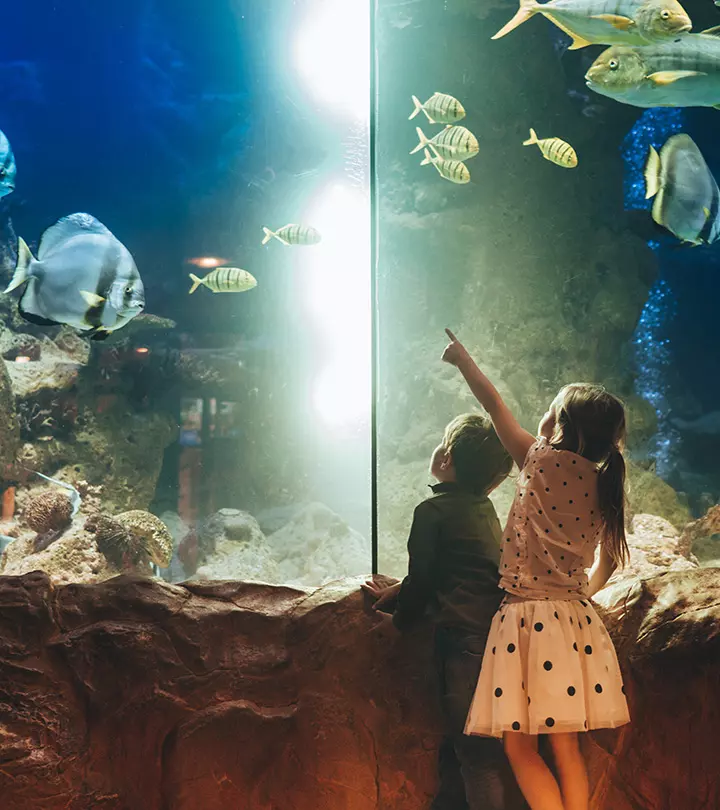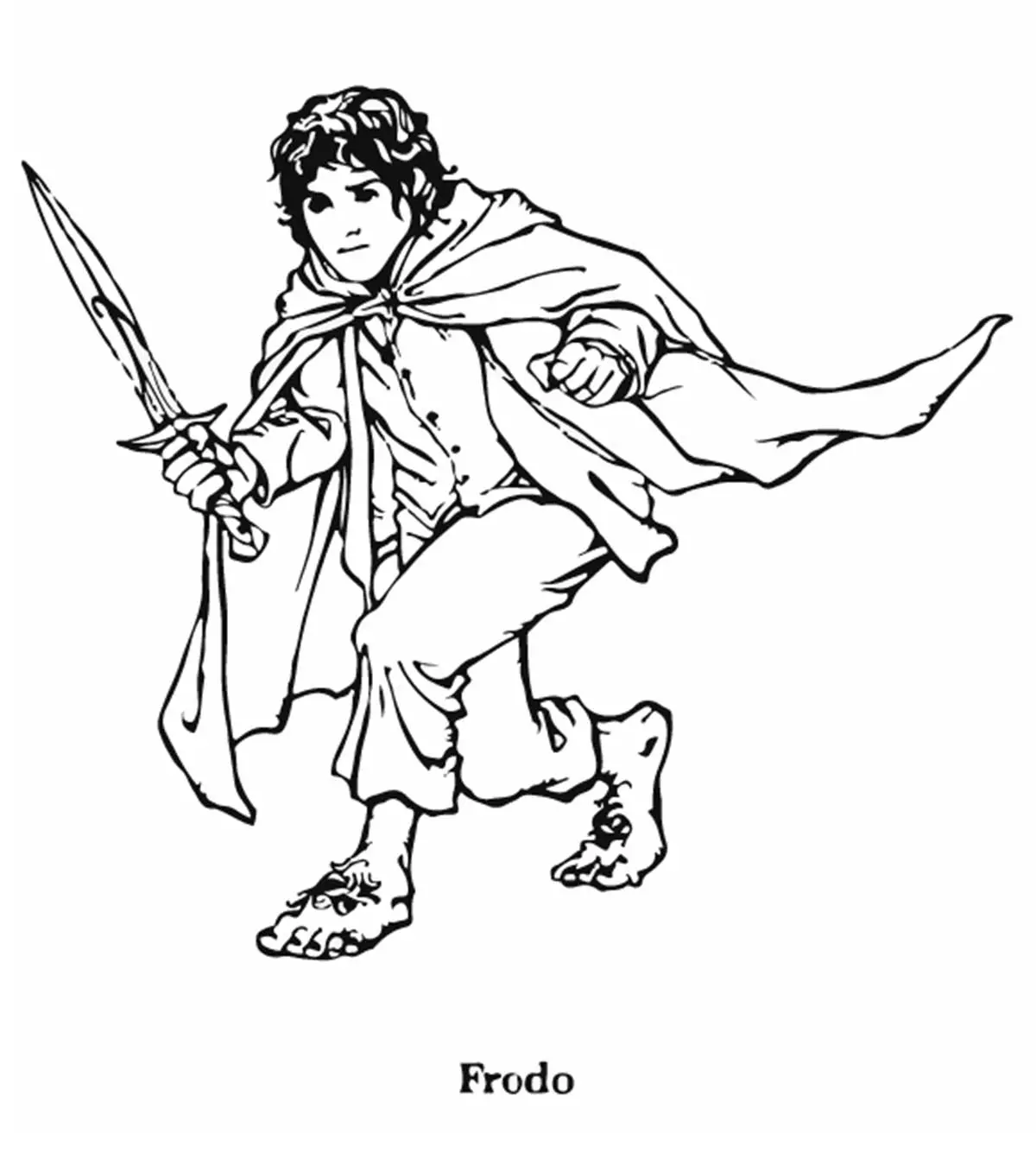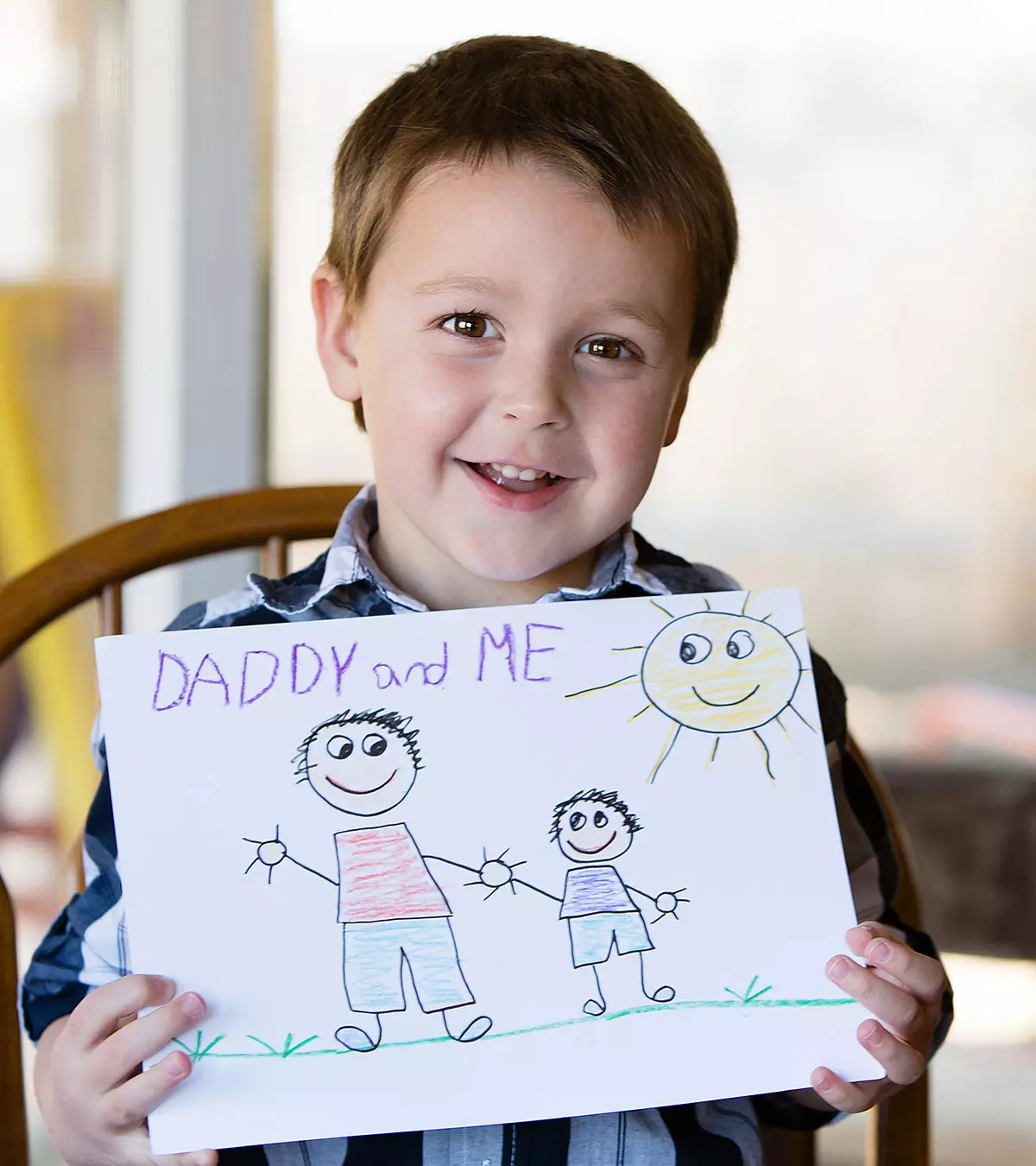
Image: Midjourney/ MomJunction Design Team
Teaching hobbies for kids is a fun, relaxing, and engaging way to spend one’s time. Children love recreational activities and learning new things. Reading, writing, painting, etc., are ways to utilize time productively and promote cognitive and emotional development. In addition, indulging in hobbies together can strengthen the parent-child bonds. You may also involve them in your hobbies, such as cooking or gardening. Knowing your child’s unique interests is crucial in selecting a hobby that excites them and contributes to their all-round development. Read on to know some interesting indoor and outdoor hobbies that help in the holistic development of kids.
Key Pointers
- Hobbies make children learn new skills that would last a lifetime, boost self-confidence, and make new friends with similar interests.
- Be patient, non-judgemental, and observant towards their preferences, interests, and skills while they pick hobbies.
- Children can have more than one hobby, and the ideas in this article can help them pick a hobby of interest.
Importance of Hobbies For Children
Hobbies help children express their personalities and interests and learn new skills. They can choose a hobby that best suits them. Besides creating fun and enjoyable experiences, hobbies can help (1) (2):
- Alleviate boredom and feelings of stress and pressure.
- Interact with new people and make friends with similar interests.
- Learn new skills supporting personal and professional development.
- Provide an opportunity to vent out negative emotions and cultivate positive feelings.
- Nurture creativity and encourage exploration of new ideas.
- Promote a perspective-taking attitude that helps develop compassion and generosity.
- Boost self-confidence and self-esteem that helps in developing a positive personality.
- Promote psychosocialiA phenomenon relating to the interaction between an individual’s psychological and social factors. and physical growth essential to maintain health and overall well-being (3).
Tips To Help Your Child Choose A Hobby
Selecting a meaningful hobby for your child could be challenging. Here are a few steps to make the process less overwhelming.
- Involve your child in discussions to understand their motivations and interests.
- Observe their skills and strengths to suggest a hobby they may take up.
- Ask them to make a list of activities that they would like to take up as hobbies.
- Analyze and configure each activity for its overall benefits for the child.
- Avoid being pushy or rushing them since children need more time to analyze and interpret their feelings and thoughts.
- Stay open to new ideas until your child finalizes on a couple of meaningful hobbies.
- Consider hobbies based on the seasons, such as skiing in winter and gardening in spring, to keep the child engaged year-round.
35+ Engaging Hobbies For Kids
Nature-related hobbies are thrilling and allow the child to explore the beauty of their natural surroundings.
Interacting with nature promotes social-emotional well-being and develops resilience (4). It also provides a practical learning experience that promotes overall development.
1. Nature watching
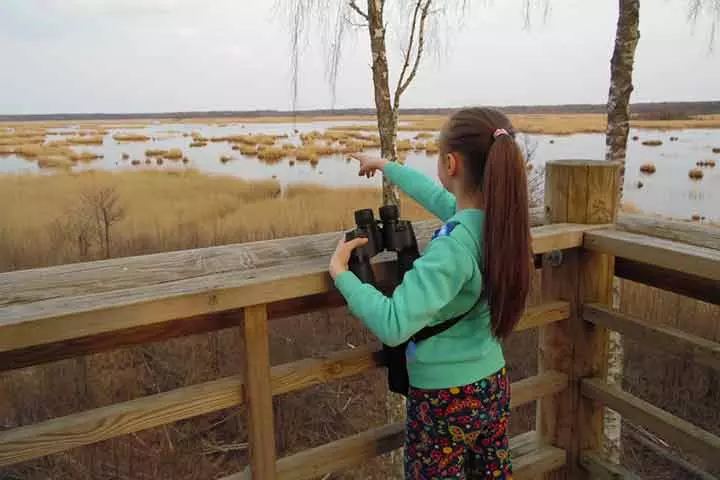
Nature and wildlife activities such as bird watching can be a thrilling learning experience for children across ages. A walk to a nearby park at sunrise and sunset, trekking, rock climbing, bicycle riding in a park, hiking, camping in the jungle, or a wildlife sanctuary are enjoyable activities that can motivate them to indulge in nature-watching as a hobby.
2. Gardening
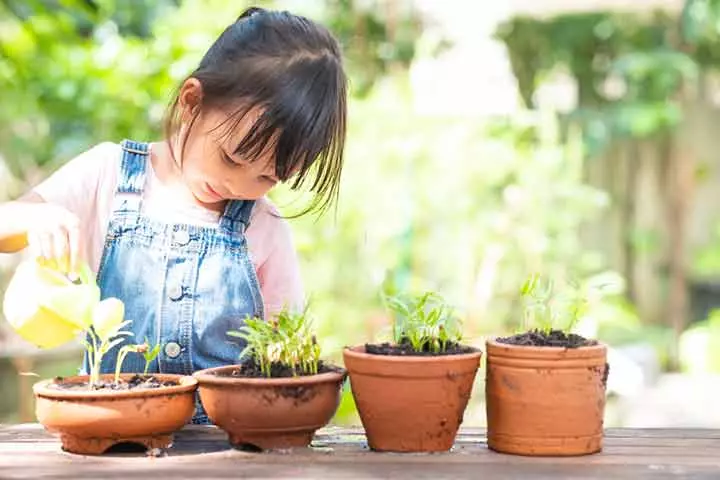
Gardening is an engaging activity that helps your child learn new skills. Digging, watering, composting, potting, etc. promotes your child’s physical, mental, and socio-emotional development, making them confident, responsible, and self-reliant (5). Gaining knowledge of plant and soil types, plant life cycles, and insects or worms are added benefits of gardening. Mother Melissa Frost shares the way her children spent most of their time in their garden during summer. She says, “My son would remind me that we had to water the tomatoes, the peppers, the snap-peas, the carrots, the beets, the leaves (basil), and the raspberries. I didn’t think my kids would care too much for our garden, but I was very wrong.”
Recalling that he often ate the fruit before they were fully ripe, she adds, “My kids put so much effort into the task of watering the plants, pulling out weeds, keeping the garden nice and mud-free. It was the cutest thing. The joy on their faces once they saw a tomato growing on a plant and that they were actually allowed to pick it eat it whenever they wanted to, was amazing (i).”
3. Caring for animals
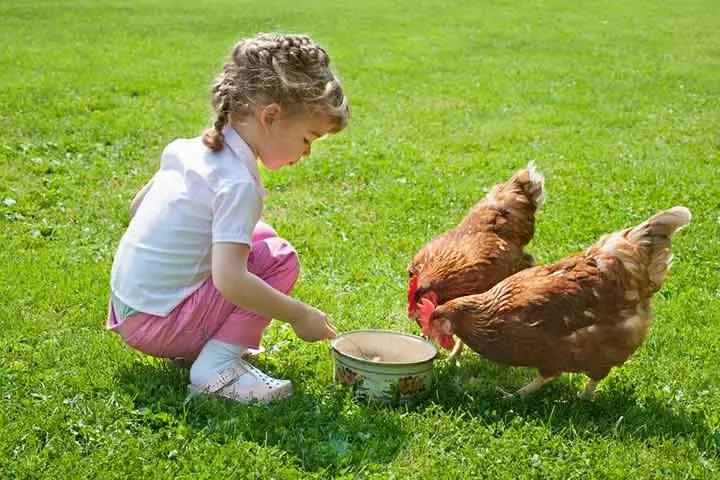
Pet rearing can be an engaging, learning, and gratifying hobby that can make a child responsible, patient, compassionate, and self-reliant. Involving your child in pet care activities, like grooming, nail trimming, feeding, strolling, etc. helps them better understand animal care. If you cannot bring home a companion animal, you could encourage them to volunteer at the local animal shelter.
4. Organic farming

It is a chemical fertilizer and pesticide-free farming technique that can sensitize your child to the judicious use of natural resources and increased sustainability. Take your child to an organic farm to observe, learn, and practice organic farming with the right guidance. Take their feedback and discuss their learnings to help choose organic farming as a hobby.
5. Recycling waste
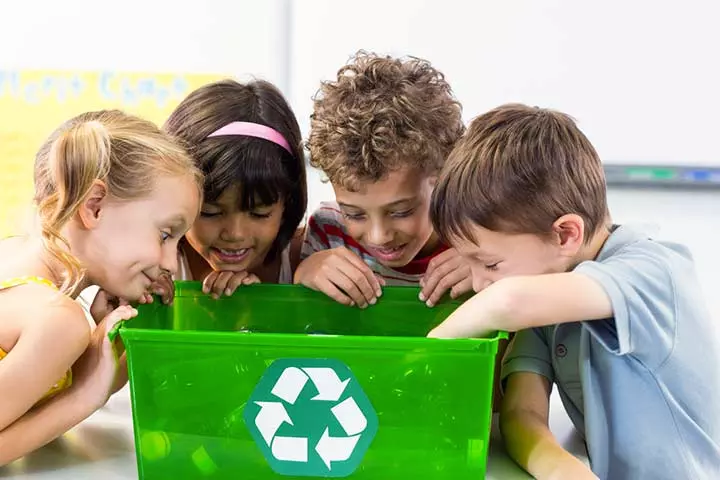
Recycling waste is an eco-friendly practice that helps convert waste material, like paper, cardboard, plastic, steel cans, etc. into new things. This creative activity can be a fun, engaging, and learning hobby for children that also makes them conscientious towards nature. You can encourage your child to pursue recycling as a hobby by practicing recycling at home.
Performance-Based Hobbies
Hobbies related to performing arts are suitable for children with interest in music and dance. Involving in such activities can contribute to the children’s cognitive and physical development (6) (7). Besides, they help in the physical, psychosocial, and emotional well-being of a child.
6. Singing
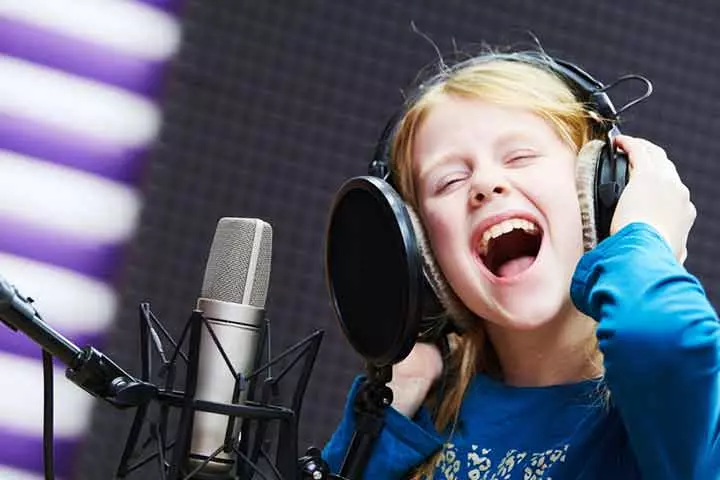
Singing is an interest and skill-based hobby that relaxes the mind and has several physiological benefits, like enhanced respiratory and cardiac function (8). Enrolling in professional singing classes can boost your child’s talent and hone their singing skills.
Mapaarsa, a singer and blogger, shares how singing has always been more than just a hobby—it’s her passion and a source of relaxation. She says, “Singing for me has always been my passion. I remember that since I was a little girl, I loved listening to and repeating melodious sounds. When I was just 2 years old, my mom told me that I always tried to copy the sounds produced by a melody because that made me happy; and since I was 3 years old, my passion has always been to be in front of a microphone, to express different melodies with my voice. At age 4 I learned my first song and from that moment, any place is good to sing.
When I sing, I feel relaxed, and I am sure that, through singing, I can cross barriers and I can communicate without the language being a hindrance. With singing I have also felt a unique sensibility towards what happens to my surroundings, because singing is life (ii).”
7. Dancing

Dancing is an entertaining and enjoyable activity that helps relax the mind and maintain physical health. It is a fantastic cardio workout that enhances stamina and strengthens both bones and muscles (2). If your child likes to dance and wants to learn a dance form as a hobby, enrolling them in a professional dance class is a good idea. Learning dance from a professional helps in guided development of dancing skills.
8. Theater

Theater is one of the extra-curricular activities for kids that hone communication and problem-solving skills. You can support them in joining a theater group or an acting academy to explore different theater genres to upskill themselves.
9. Playing instruments
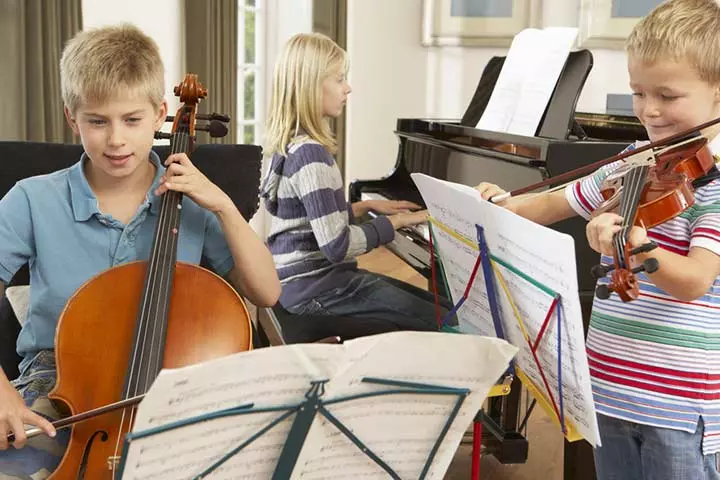
Playing a musical instrument is a skillful art that promotes mental well-being. Children interested in listening to and creating music can take it up as a hobby once they are ready to handle an instrument. Expose them to the different instruments they could play and guide them in choosing one they can learn and enjoy playing.
Arts and crafts activities are fun and entertaining ways to boost creative thinking abilities and hone motor skills. Research suggests that such activities help build resilience and develop children’s positive mental well-being (9).
10. Origami
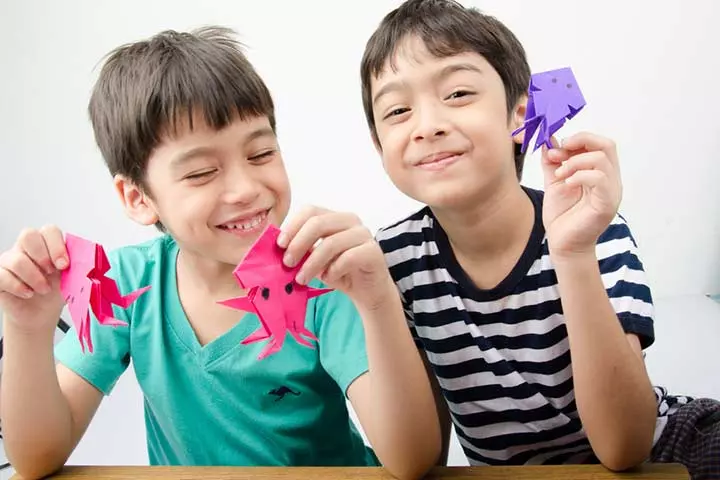
Origami is a creative and skilled paper-folding art that boosts critical thinking and hones dexterity. Some children in Montessori learn origami as part of their curriculum, while others can use online resources and courses to learn this paper-folding craft. A child usually aged eight years old or above can understand origami instructions and pursue it independently as a hobby.
11. Cooking

Cooking is a joyful skill that attracts children of all ages. If your child likes helping you cook and is old enough to take it up as a hobby, encourage them to take cooking or baking classes for kids. Cooking as a hobby can enhance their analytical skills. Recommend starting with safe no-fire recipes and progress towards complex culinary skills.
 Do remember
Do remember12. Scrapbooking
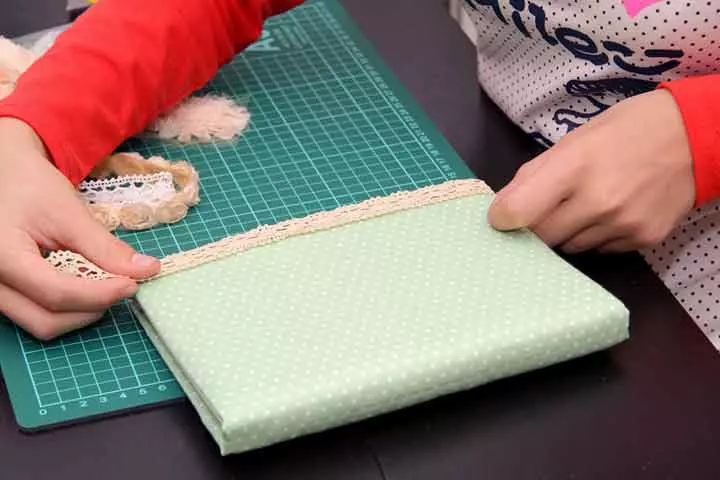
Scrapbooking as a hobby can be an amusing and engaging craft activity that helps boost creative skills and self-esteem. It can be an interesting activity for kids above three years of age, who like making artistic items that express their thoughts and ideas.
13. Knitting

Knitting is a craft of stitching yarn or thread into fabric by hand or machine. Children can learn to knit between the ages of five and six and take it up as a hobby and learn several knitting techniques based on their interest and the craft’s complexity. Knitting classes could help learn intricate knitting methods to create delicate knitting items, like laces. If not knitting, encourage your child to take up sewing and teach her how to mend her own clothes.
14. Woodcraft
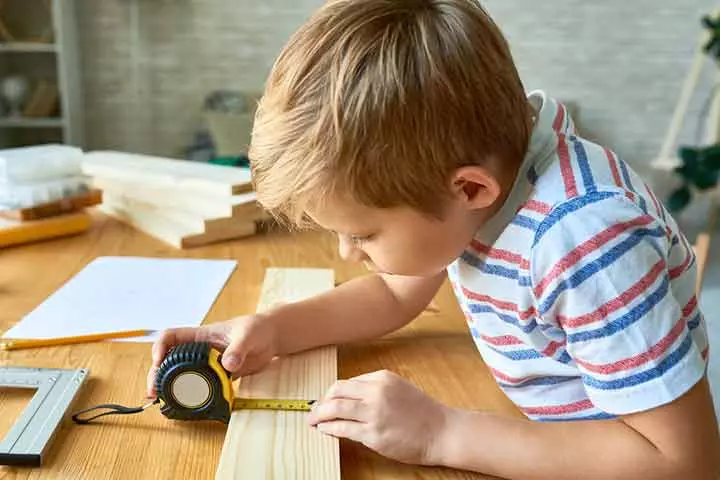
Doing woodwork as a hobby promotes fine and gross motor skill development and hand-eye coordination, logical thinking, creativity, perseverance, and focus. Children above five years of age can engage in woodwork under guidance.
15. Crochet
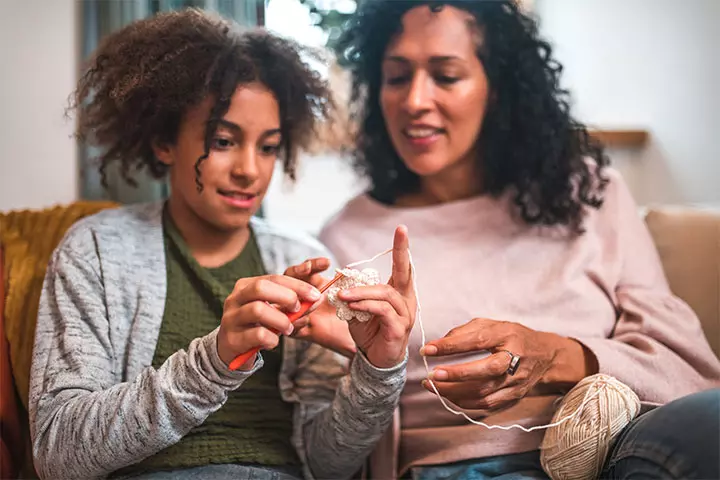
Engaging in crochet can be one of the best things to do when kids are bored. It is an enjoyable and imaginative way to spend time and holds several advantages for your child’s mental and emotional well-being. Children above five can indulge in crochet, which stands out as a popular and fulfilling hobby, delivering various benefits from stress relief to expressive creativity. It’s relatively simple to learn, requiring basic stitches and some practice, making it accessible to beginners.
16. Tapestry
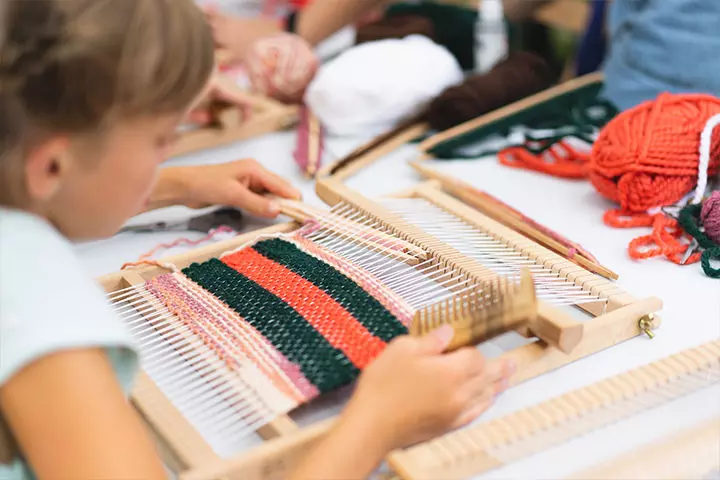
There are occasions in everyone’s life when we crave something fresh and revitalizing. Engaging in tapestry as a hobby can be enjoyable and educational for children above four. Tapestry, a form of textile art, involves weaving colorful threads or yarns on a loom to create vibrant and intricate designs. This hobby nurtures imagination and nourishes focus and patience, as creating intricate designs takes time and attention to detail.
Science-related hobbies are useful to develop analytical thinking, logical reasoning, and problem-solving skills. They nurture children’s innate ability to “question and seek an answer,” an elemental skill to understand the world.
17. Astronomy
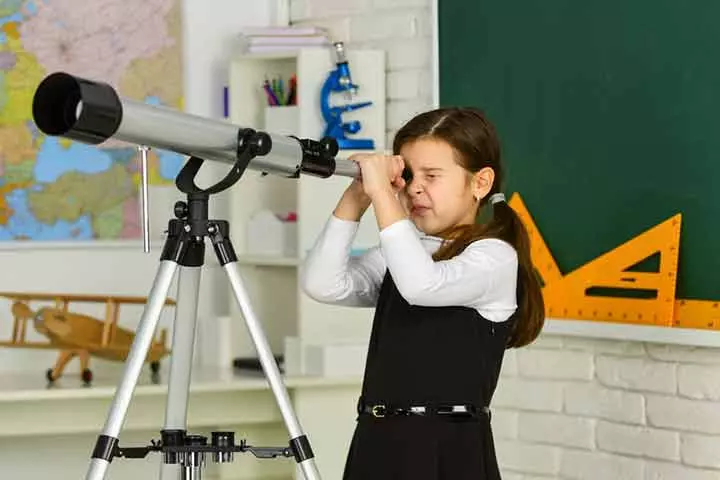
Astronomy is a branch of science that studies celestial objects, like galaxiesiMassive systems of stars, gasses, dust, and remnants held together by gravitational force that form the universe. , stars, planets, and cometsiSmall celestial bodies containing a nucleus of snow, dust, gasses, and a tail that orbit the sun. (10). Children as young as four years can indulge in this science activity as a hobby. Providing them with an age-appropriate telescope and visiting children-specific astronomy workshops or planetariumsiA building or facility specially designed to showcase images of stars and planets (the solar system). are good ideas to motivate them to try it as a hobby.
18. Meteorology
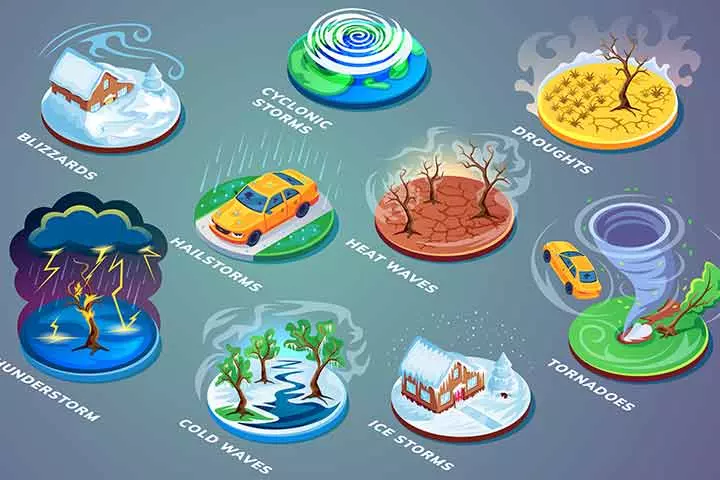
Meteorology is the study of weather and its forecasting. Children above five years of age can use meteorology instruments, like a rain gaugeiA device used to measure rainfall. or remote reading thermometer, and begin with a basic understanding of the process. Volunteering at a local weather center or enrolling in meteorology classes is an option that older children can try while pursuing this hobby.
19. Entomology
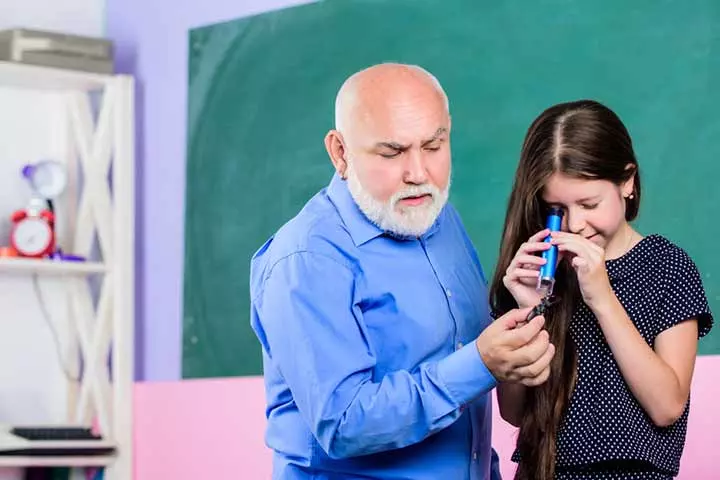
Entomology teaches about insects and their life cycle. Children with interests in activities, like bug hunting, studying insect life cycle, etc. can pick entomology as a hobby. Encourage your child to pursue their hobby by indulging in activities available on science portals, visiting entomology workshops, and watching educational shows.
20. Geocaching

Geocaching is a Google map adventure activity that is fun, challenging, and entertaining. In this activity, participants use mobile GPS to hide and seek geocache using Google coordinates. Geocache is a container (plastic/metal/wooden) that may have items like soft toys, currency, books, etc. Children who like adventure or exploration activities can develop this digital hobby and learn to be responsible, independent, and self-reliant.
Collecting Hobbies
Collecting hobbies are fun and inquisitive activities that involve treasuring items. The collectible items can range from coins, stamps, to antique furniture and paintings. Children across ages can collect items, but only a few have the knack for treasuring them.
21. Coins
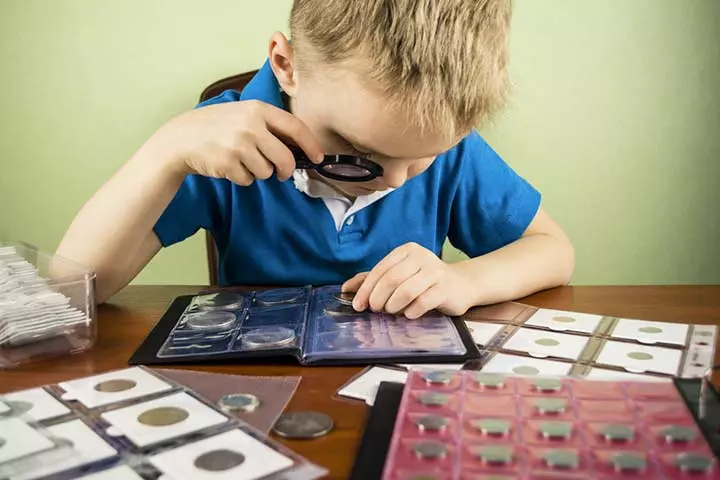
Collecting coins can be an enjoyable and educational hobby for children across ages. . Encourage your child to collect coins and learn about their historical significance. You can be involved in this hobby of theirs by giving them unique and rare coins and helping them understand the features, inscriptions, and images on the coins.
22. Stamps
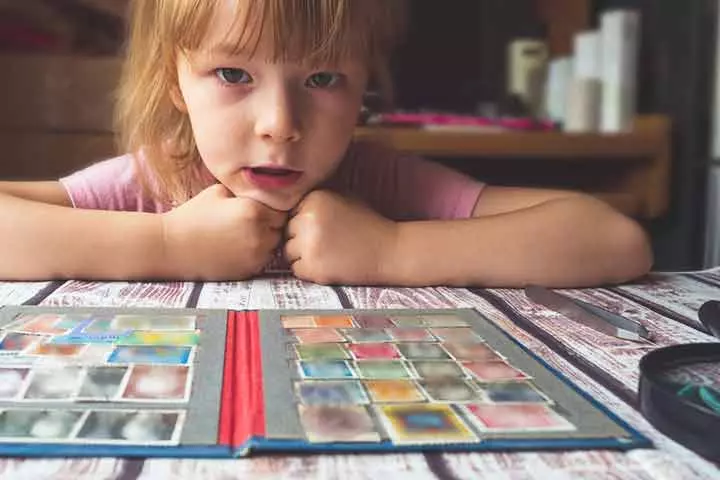
Collecting stamps is another fun learning activity that teaches children to organize, evaluate, and treasure an item. Stamp collection can be a hobby for children willing to learn different languages, histories, people, and cultures.
23. Cards
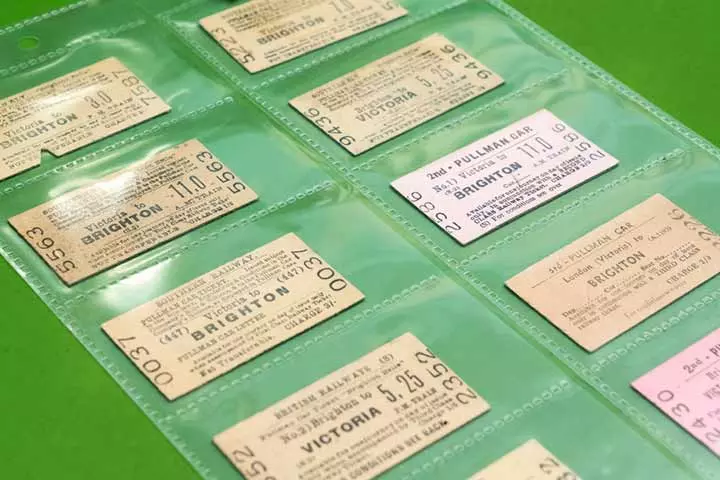
Sports cards, gaming cards, history cards, etc. are types that children can collect and learn to trade based on their interests. Trading cards allows them to earn money that depends on the card’s condition, rarity, and popularity, and also teaches them about networking with like-minded individuals.
24. Comic books

Collecting comic books can be a joyful hobby for avid readers. Reading comics can help improve language skills and enhance vocabulary. Besides, it can boost your child’s creativity. Gifting comic books and having combined reading sessions are some ways to support the hobby.
25. Rocks and seashells

Rock and seashells collection is a skillful and artistic hobby requiring an eye for unique features. Collecting these natural items needs extra care and attention, making your child responsible. Using the collection to craft an item helps hone creative skills and boosts your child’s self-esteem.
26. Video games

Children across ages love playing video games. Collecting and organizing them can make for a great hobby. If your child looks keen to collect video games, motivate them to pursue their hobby.
Indoor Activities
Indoor activities offer entertaining and engaging ways to learn skills and concepts. You can indulge in several interest-specific indoor activities that enhance your child’s physical, cognitive, and socio-emotional skills.
27. Reading

Reading boosts vocabulary, improves language and communication skills, and teaches ways to express thoughts, ideas, and beliefs. If your child is an avid reader, motivate them to pick reading as a hobby. You can guide on the kind of books they can read and let them explore the genres that interest them.
 Quick tip
Quick tip28. Puzzles
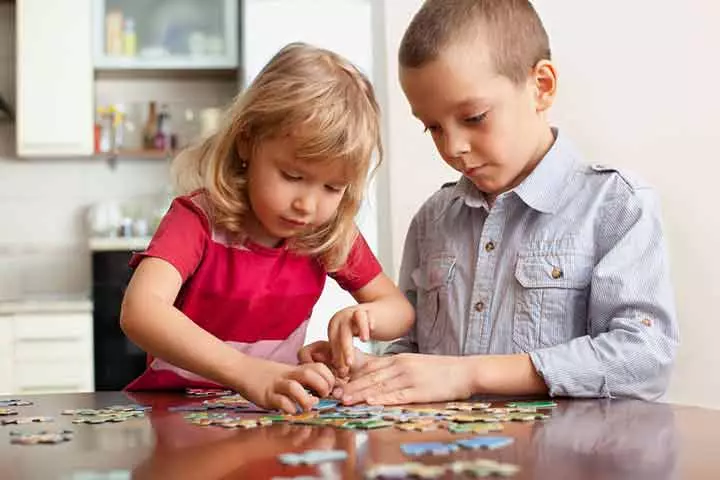
Puzzles are mind-teasing board games suitable for children across ages. Involving in puzzles promotes cognitive functions and improves mood. To build a hobby for puzzles, start early in childhood, and provide age-specific puzzles that are fun and challenging. Participate in the puzzle activities and encourage your child to create a puzzle from scratch.
29. Riddles
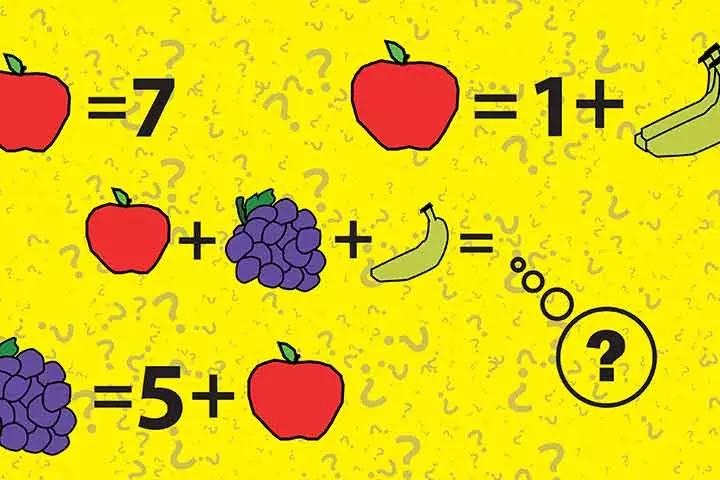
A riddle is a question or statement that requires effective utilization of cognitive skills, like deductive reasoning, to help find the answer. Based on the interest, involve your child in a writing riddle, numerical riddle, year riddle, or riddles of other types. Making up riddles as a hobby encourages brainstorming and hones critical thinking and logical reasoning skills.
30. Sudoku
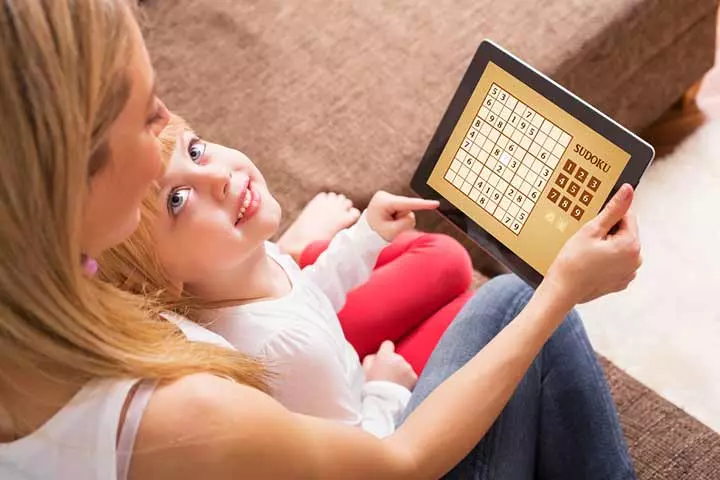
Sudoku is a mathematical game like chess that enhances logical thinking. Children above eight years of age can take it up as a hobby and quickly learn its rules or principles. Suggest your child to start solving beginner’s Sudoku and progress towards complex Sudoku formats with a 25X25 grid, gradually.
31. Word unscramble
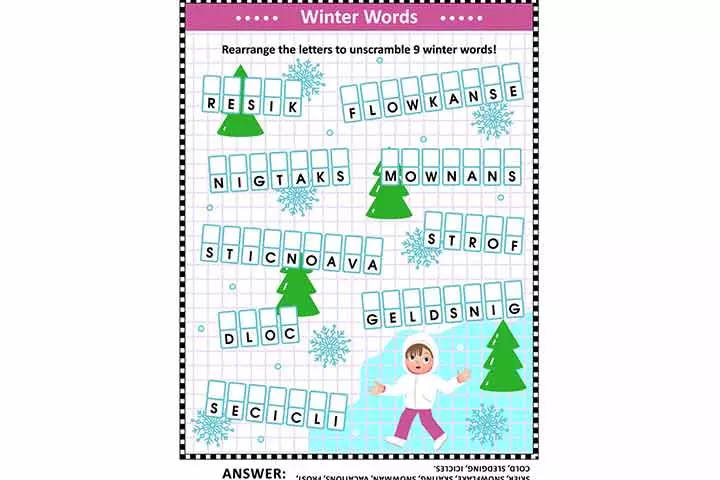
Word Unscramble is a language game in which a child has to make words out of scrambled alphabets/letters. Its regular practice enhances vocabulary and spelling skills. Several worksheets, online resources, and games for this are available for your child to try. It is one of the most suitable hobbies for children above six years of age.
Outdoor Activities
Outdoor activities are ways to connect with your surroundings and involve physical activities necessary for overall well-being.
32. Skateboarding

Skateboarding is a skillful game that strengthens the body and enhances flexibility. Children above six years of age can take it as a hobby under parental guidance. Motivate your child to participate in skateboarding events and competitions to boost their confidence. Roller Skating and ice skating are other forms of skating that will be easy for your child to pick up, with ice-skating requiring an additional set of skills.
33. Swimming
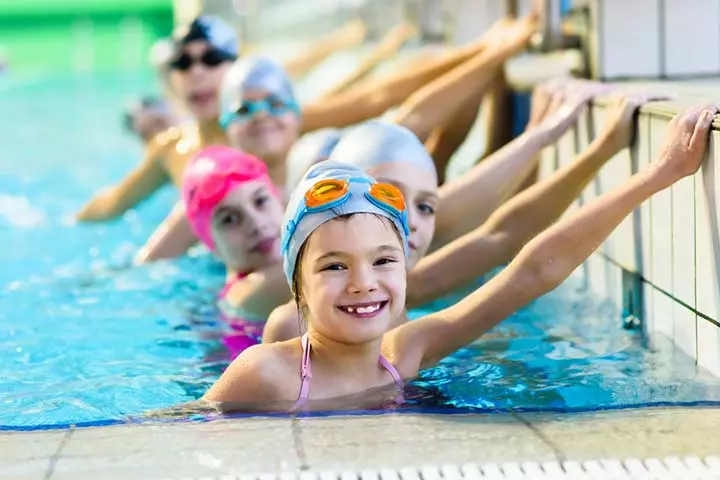
Swimming strengthens muscles, increases cardiac output, and maintains overall well-being. Children as young as four years of age can learn this life skill and practice it as a hobby. Start by enrolling them for swimming lessons to learn the basics right.
34. Cycling
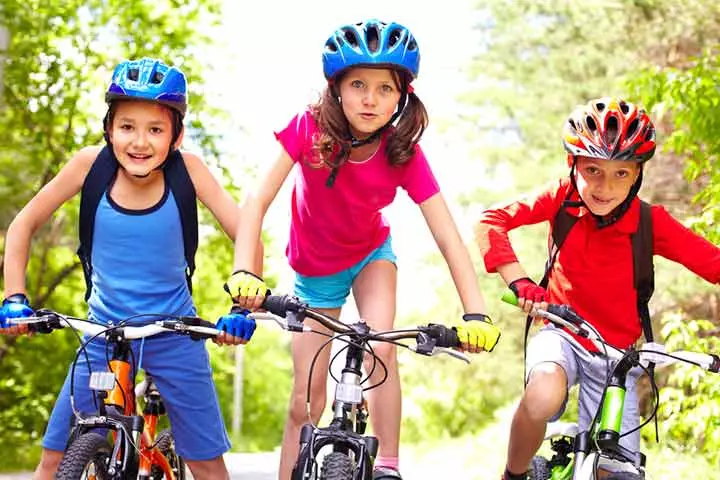
Cycling, as a hobby, can boost physical and mental health. Children above five years of age can start cycling under the vigilance of the caretaker/parent. Join your child for cycling and turn it into a fun activity.
35. Photography

Children above five years of age can take up photography as a hobby. All they need is a camera, guidance, and tips for taking good pictures. Take your child to different places, like parks and playgrounds, click pictures, and have a good time with you.
36. Kayaking
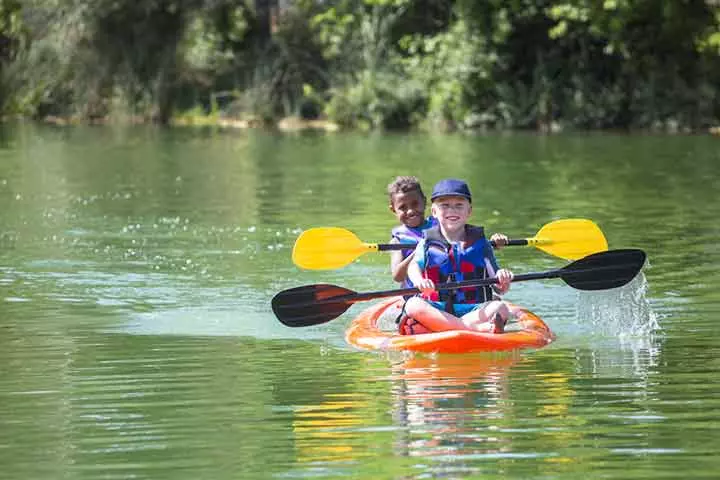
If water sports interest your child, then kayaking can be an enjoyable hobby to try. Children above five years can participate in this thrilling activity with much ease and safety. Kayaking, as a hobby, can strengthen the upper body muscles, improve cardiovascular health, and boost mood.
37. Judo
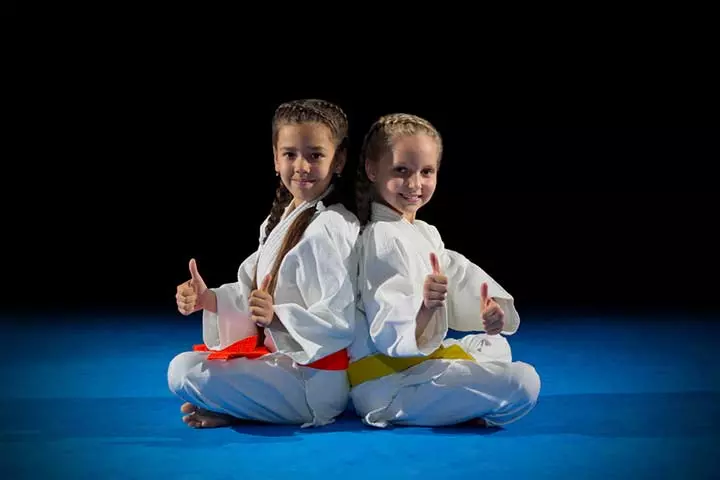
Judo is a modern martial art form that is also suitable for children. Taking up judo as a hobby helps develop strength and flexibility, enhance agility and balance, and boost self-confidence. If your child is not comfortable with judo, several other martial arts forms can be taken up such as karate, kickboxing, taekwondo, etc.
38. Hiking
Hiking is a wonderful activity that combines nature exploration with physical fitness. It helps strengthen muscles, improves coordination, and promotes cardiovascular health while improving mental well-being. This activity also allows parents to spend quality time with their kids while exploring the surroundings. Hiking in groups can also develop children’s social and communication skills.
Frequently Asked Questions
1. What kind of hobbies help children develop important life skills?
Children can gain essential skills, including responsibility, patience, and confidence through hobbies, such as gardening, caring for pets, farming, cooking, and playing an instrument.
2. Can hobbies help children to develop a sense of responsibility?
Yes, hobbies are an excellent method to teach kids responsibility. For instance, caring for animals will teach them how to feed, walk, and maintain their hygiene, which will make them responsible.
3. How do hobbies help to build self-confidence in kids?
Hobbies make children realize their interests and abilities and help them understand what they enjoy and are good at. This helps them build confidence and self-esteem.
4. How can I encourage my child to try new hobbies?
If you wish your child to engage in new hobbies, you can follow a few simple strategies. Explore the new hobby with them so that they find the courage to follow in your footsteps. Your child will also feel encouraged if you feel excited about the activity. Be friendly and supportive so they don’t feel pressured to do well. Start with easy tasks and gradually increase the activity level once your child shows interest.
5. What are some low-cost hobbies for kids?
Nature-related and artistic activities can be low-cost hobbies for kids. Gardening, hiking, farming, singing, dancing, scrapbooking, crocheting, and solving riddles are some examples of activities that can be done at home with simple household items or online resources.
Indulging in hobbies can help reduce boredom, interact with peers, and learn new skills. It nurtures a child’s creativity and boosts brain development and positive personality development. You may observe your child’s interests, strengths, and skills to suggest age-appropriate hobbies. Nature-related activities such as nature watching, gardening, caring for animals, recycling waste, and performance-based activities such as singing, horseback riding, and dancing can be suitable hobbies for children. You may even select crafting, cooking, and computer coding if they are interested. However, ensure to provide supervision and guidance to activities that involve a knife or other instruments.
Infographic: Engaging Hobbies For Children
It is best to start engaging your little ones in hobbies from their young days so that it can also aid in their overall development. In the following infographic, we have listed a few of the many hobbies that you can choose from for your child. Remember to share it with your children so they may also explore and pick the hobby they find most interesting. Illustration: Momjunction Design Team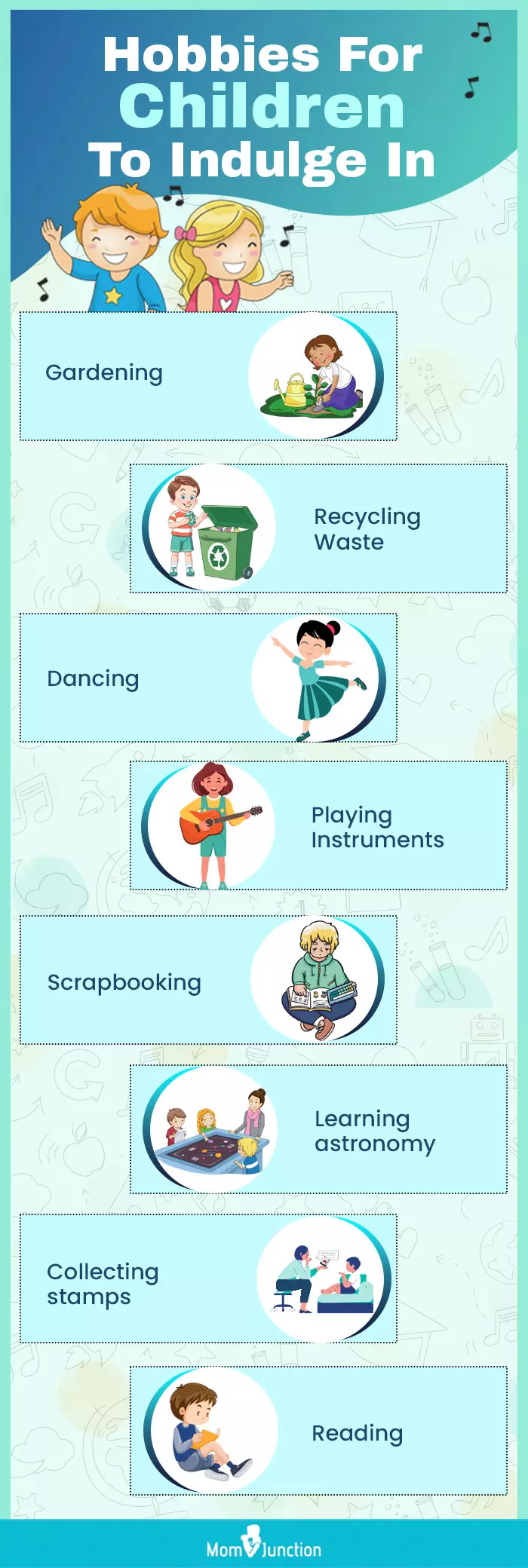
Illustration: Best Hobbies For Kids To Achieve All-Round Development

Image: Stable Diffusion/MomJunction Design Team
Do you like playing sports, drawing, or reading? Let’s learn about hobbies and interests in English! Join us to explore what you like doing!
Personal Experience: Source
MomJunction articles include first-hand experiences to provide you with better insights through real-life narratives. Here are the sources of personal accounts referenced in this article.
i. My kids run our garden and now they’re confident veggie-masters; Mediumii. My 2018 – This is my Hobby: Singing is my passion; Steemit
References
1. Hobbies Are Important; Everyone Should Try One; West Liberty University
2. Importance of hobbies; University of Arkansas system
3. Sarah D. Pressman et al.; Association of Enjoyable Leisure Activities With Psychological and Physical Well-Being; NCBI
4. Ming Kuo et al.; Do Experiences With Nature Promote Learning? Converging Evidence of a Cause-and-Effect Relationship; NCBI
5. Gardening for children; BetterHealth Channel
6. Ewa A. Miendlarzewska and Wiebke J. Trost; How musical training affects cognitive development: rhythm, reward and other modulating variables; NCBI
7. Zoe Bremer; Dance as a form of exercise; NCBI
8 Graham Frederick Welch; The Benefits of Singing for Children; ResearchGate
9. Leyre Zarobe and Hilary Bungay; The Role of Arts Activities in Developing Resilience and Mental Wellbeing in Children and Young People a Rapid Review of the Literature; NCBI
10. Astronomy; Science Daily
Community Experiences
Join the conversation and become a part of our nurturing community! Share your stories, experiences, and insights to connect with fellow parents.
Read full bio of Dr. Holly Schiff
Read full bio of Harshita Makvana
Read full bio of Deepa Thomas
Read full bio of Nisha Bharatan










